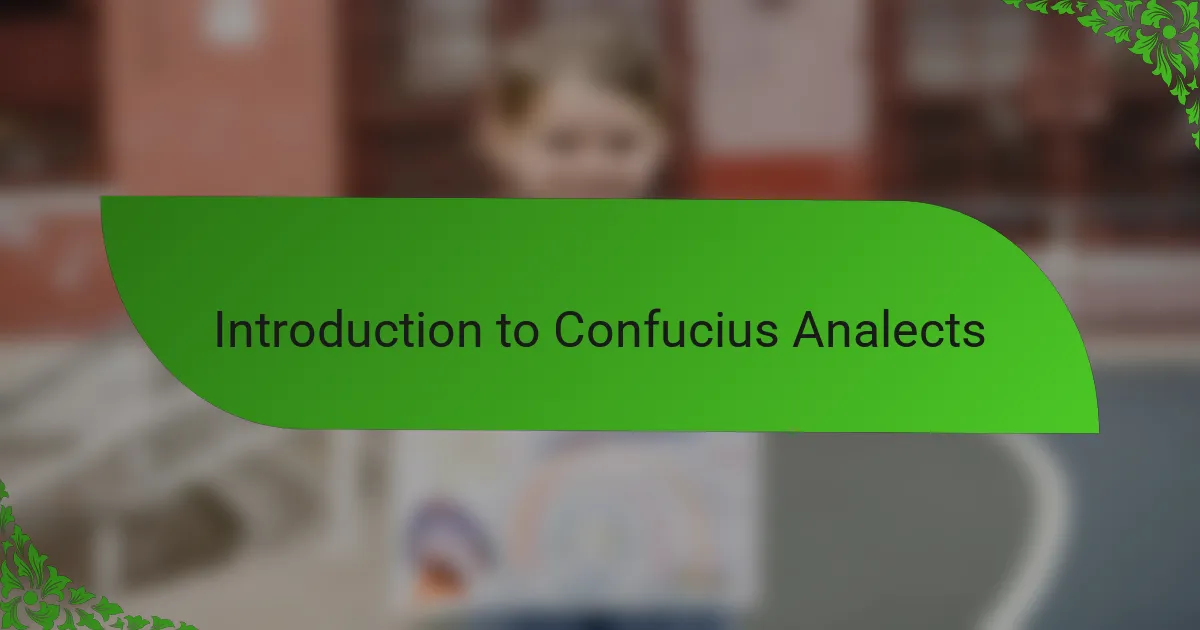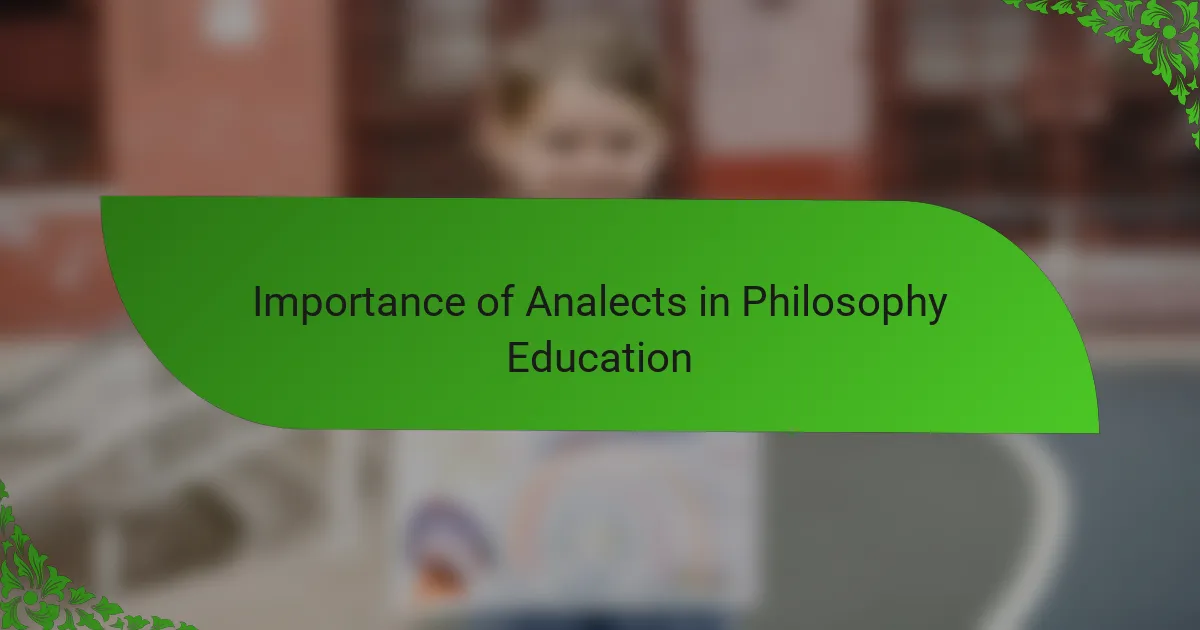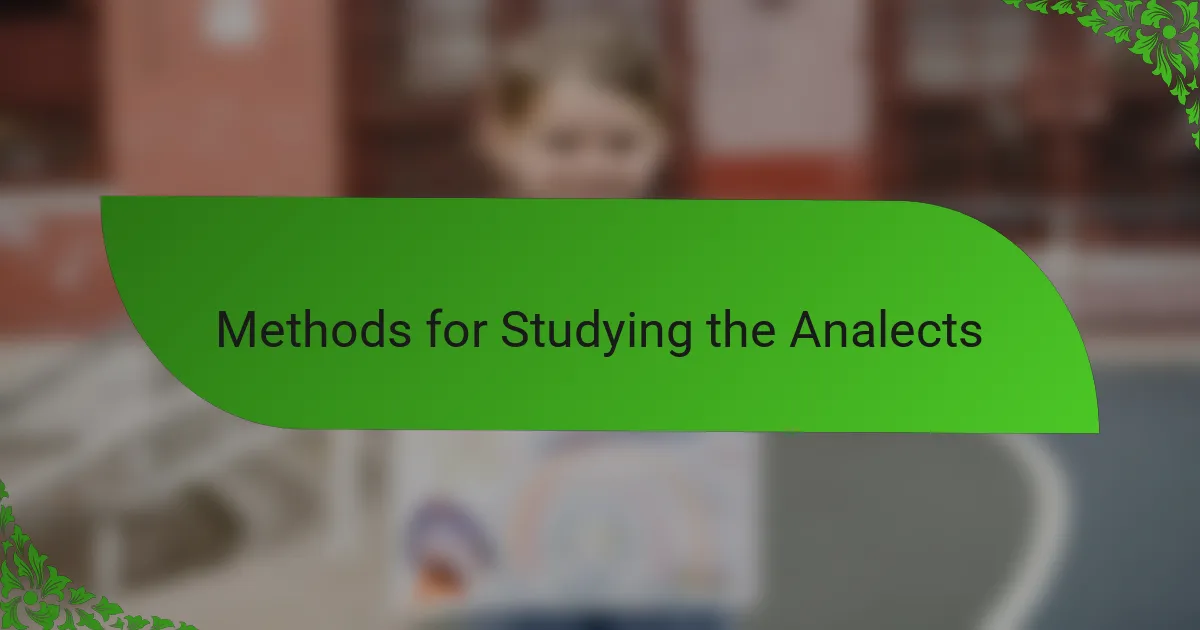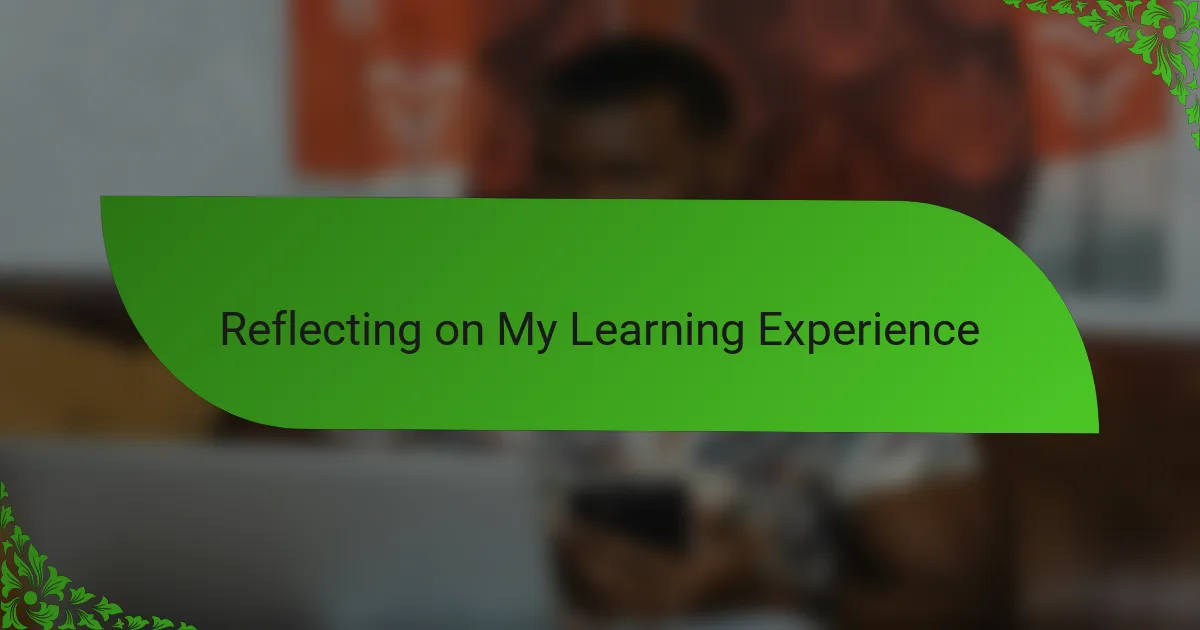Key takeaways
- The Analects of Confucius emphasize practical ethics like respect, honesty, and self-cultivation, making them relevant for personal and societal growth today.
- Studying the Analects fosters deep reflection and dialogue, transforming philosophical concepts into personal development tools.
- Daily integration of a single saying from the Analects can shape one’s mindset and decision-making, illustrating the application of ancient wisdom in modern life.
- Engagement with the text through journaling and discussion enhances understanding, allowing for ongoing personal transformation and insight.

Introduction to Confucius Analects
The Analects of Confucius is a collection of sayings and ideas attributed to the Chinese philosopher Confucius and his disciples. When I first encountered these texts, I was struck by their simplicity and depth—a few words could carry profound wisdom about human nature and society. Have you ever come across a book that makes you pause and rethink your values in just a sentence or two? That was my experience with the Analects.
What fascinates me most about the Analects is its focus on everyday ethics—topics like respect, honesty, and filial piety—which feel surprisingly relevant even today. Reading through Confucius’s teachings felt like having a conversation with a thoughtful elder, one who challenges you to grow both intellectually and morally. It’s not just philosophy; it’s a guide to living well.
Engaging with these texts was not always easy. At times, I found myself wrestling with their cultural context and the weight of tradition. But that struggle made the insights all the more rewarding, as I gradually saw how timeless themes of virtue and self-cultivation transcend any era or place. Have you ever wrestled with an old text only to discover something deeply personal hidden inside? That’s the kind of experience the Analects invites.

Importance of Analects in Philosophy Education
The Analects hold a special place in philosophy education because they offer more than abstract ideas—they provide practical guidance on how to live ethically. From my experience, these teachings challenge students not just to think, but to reflect on their own behavior and relationships. Isn’t that what true education should do—push us to become better people?
What I find compelling is how the Analects bridge the gap between ancient wisdom and modern life. When we study them, we’re not just learning philosophy as history; we’re engaging with living ideas that shape character and community. This makes them incredibly valuable tools for anyone aiming to understand ethics beyond theory.
Engaging with the Analects in an educational setting, I noticed a shift in how discussions unfolded—questions about respect or integrity felt personal, not hypothetical. That’s when I realized the power of Confucius’s words: they transform philosophy from a distant subject into a conversation about who we want to be. Doesn’t that breathe new life into learning?

Methods for Studying the Analects
When I first tackled the Analects, I found that reading them aloud helped me hear the rhythm and weight of Confucius’s words—almost like listening to a mentor rather than just scanning text. Have you noticed how sometimes the spoken word reveals meanings tucked beneath the surface? This method made the teachings feel alive and immediate.
Another approach I found invaluable was journaling my reflections after each chapter. Writing down my thoughts forced me to clarify what the passages meant to me personally. Have you ever discovered that putting ideas into your own words reveals insights you might have missed otherwise? This simple act deepened my connection to the text.
I also realized that discussing the Analects with others brought fresh perspectives I hadn’t considered. Whether in a classroom or informal setting, hearing different interpretations challenged me to rethink my assumptions. Isn’t philosophy at its best when it becomes a dialogue rather than a monologue? Those conversations made the study of the Analects a dynamic, living experience.

Integrating Analects into Daily Learning
Integrating the Analects into daily learning became a transformative habit for me. I started by reflecting on one saying each morning, asking myself how it might guide my decisions that day. Have you ever tried letting a single piece of wisdom shape your mindset before diving into daily tasks? It’s amazing how such a small practice brings ancient teachings into real life.
At times, I caught myself recalling Confucius’s emphasis on sincerity during conversations or moments of frustration. This spontaneous application made the lessons feel deeply personal and practical, rather than distant philosophical concepts. Don’t you think philosophy really comes alive when it nudges us to act differently in ordinary moments?
I also found it helpful to link the Analects’ ideas with contemporary challenges, like balancing honesty with kindness at work or showing respect in busy family routines. Making these connections turned abstract virtues into tangible goals I could consciously pursue. Have you noticed how ancient wisdom can offer fresh insight into issues we face daily? For me, that was a clear sign the Analects still speak loud and clear.

Applying Analects to Personal Growth
Applying the Analects to personal growth felt like unlocking a new lens through which I could examine my own habits and motivations. I found myself returning to Confucius’s idea that self-cultivation is an ongoing journey, not a destination. Have you ever wondered how you might become a better version of yourself by revisiting the same principle repeatedly over time?
One moment that stood out for me was reflecting on the teaching about humility paired with strength. It challenged my usual notion of being confident; instead, I learned that true confidence often hides behind quiet self-awareness. How often do we confuse loudness with leadership? This shift in thinking helped me approach challenges with more patience and less defensiveness.
I also practiced what Confucius calls “rectifying the heart,” meaning aligning my intentions with my actions each day. It wasn’t easy—sometimes I would catch myself slipping into old patterns—but the Analects reminded me that growth requires persistent effort. Has there been a time when small consistent changes felt more powerful than a sudden transformation? For me, that slow and steady progress became deeply rewarding.

Reflecting on My Learning Experience
Reflecting on my journey with the Analects, I realize how much patience it demanded. At times, I felt frustrated by my slow grasp of Confucius’s subtle teachings, yet each breakthrough brought a quiet satisfaction that made the effort worthwhile. Have you ever experienced that rewarding mix of struggle and clarity when learning something profound?
I also noticed how engaging with these texts reshaped my thinking beyond philosophy, touching how I relate to others. This wasn’t just academic; it felt deeply personal, as if I were remodeling parts of myself in small, thoughtful ways. Isn’t it fascinating how ancient words can stir modern emotions and insights within us?
Looking back, what strikes me most is the ongoing nature of this learning process. The Analects didn’t offer quick answers but invited me into a lifelong dialogue—a conversation I’m still having today. Doesn’t that kind of enduring engagement make philosophy feel alive and relevant in a way few other studies do?

Practical Tips for Engaging with Analects
One practical tip I found invaluable was approaching the Analects one passage at a time, rather than rushing through the entire text. Have you ever noticed how slowing down reveals layers of meaning you might otherwise miss? Pausing to reflect on a single saying helped me internalize its wisdom instead of just skimming its surface.
Another practice that transformed my engagement was keeping a small notebook handy to jot down immediate reactions or questions. This turned reading from passive consumption into an active dialogue with Confucius’s ideas. Don’t you think writing your thoughts makes abstract teachings feel more personal and grounded in your own experience?
Finally, I discovered the power of revisiting certain passages after a few days or weeks. Each time, I found new angles or insights emerging, much like peeling back layers of an onion. Has there been a time when returning to the same text deepened your understanding in unexpected ways? That ongoing conversation is what keeps the Analects alive for me.